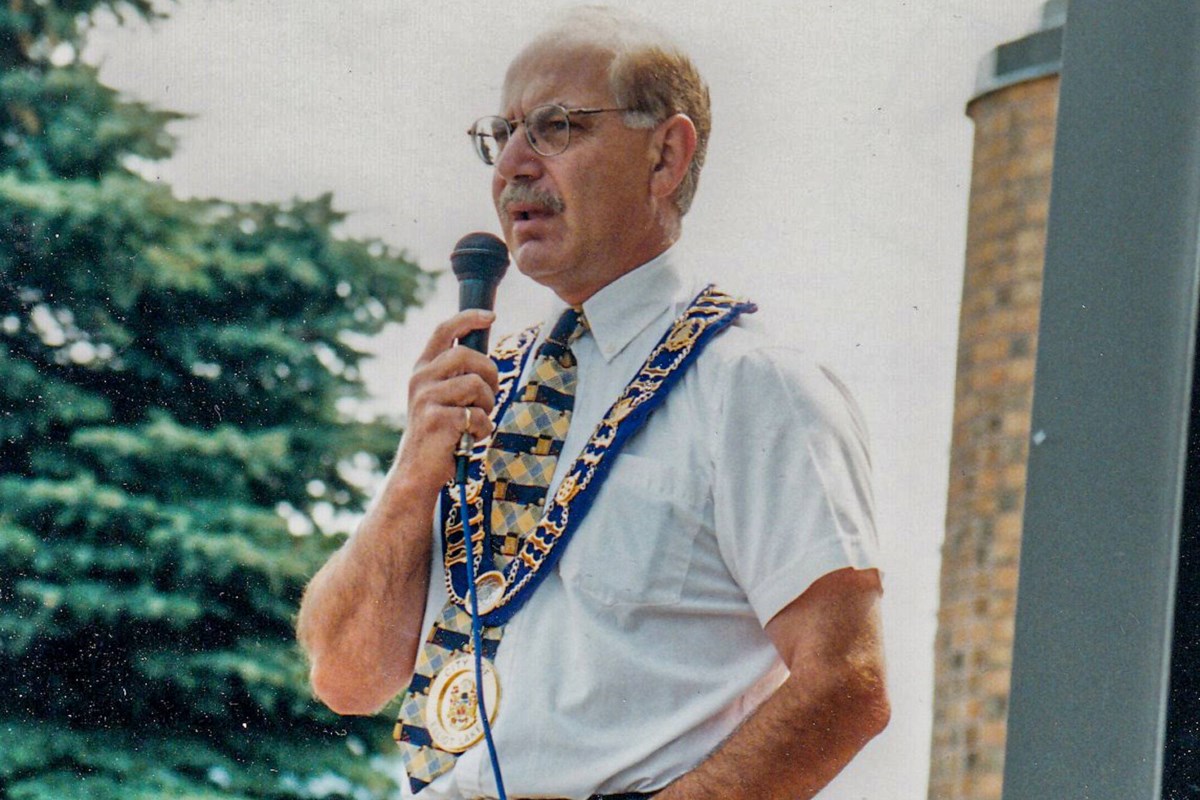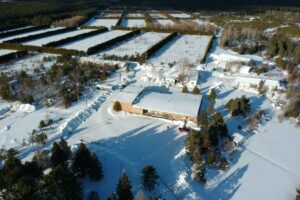Former mayor and businessman led an internationally lauded revival from down-and-out mining town to successful retirement community
George Farkouh, the former mayor of the City of Elliot Lake who helped shepherd the northeastern Ontario community from mining town to a wildly successful retirement community, died at his home on Aug. 29.
He was 76. Farkouh was mayor from 1989 to 2006.
Born in Acre, Palestine in 1947, he moved with his family to Beirut, Lebanon and from there to Canada in the 1950s, reuniting with a sibling and eventually settling in the newly created uranium mining town of Elliot Lake. His wife of 50 years, Louise, was a neighbour.
Educated at the Ivey School of Business at the University of Western Ontario, Farkouh worked at Canadian Imperial Bank of Business. He turned down an opportunity to continue a finance career in Toronto to return to Ellliot Lake in 1975 to work with his brother Fawzi and open a General Motors dealership, Farkouh Chevrolet. During the 1980s, the business grew into three dealerships on the North Shore where Farkouh was the dealer principal for 36 years until his retirement in 2022.
His political leadership skills were tested shortly after his election. The community’s two uranium mining companies, Denison and Rio Algom, announced in January 1990 they were shuttering operations.
With a population of 16,000 at the time, Elliot Lake had full employment and was one of the most prosperous communities in Canada, thanks to the subsidized housing, benefits and largesse of the local mining industry.
Farkouh and municipal staff immediately went to work managing the situation to keep the social fabric of the community from breaking down, keep water and other systems running, and simultaneously plan for its economic future.
“It was really a three-pronged approached that we had to move on,” said Farkouh in a recorded interview, “and it became a textbook perfect approach to the problem.”
Want to read more stories about business in the North? Subscribe to our newsletter.
Not willing to allow the town to die, his office formed a committee of local stakeholders involving mines management, the local chamber of commerce and the education sector to produce a 14-point survival plan and road map that was sent to every federal and provincial cabinet minister.
The Bob Rae government came through with a $250-million rescue package that assisted Elliot Lake through its economic transition that was sparked by an idea generated from within the community to acquire homes from the mining companies and market them to retirees.
Using money from the provincial package, Elliot Lake acquired 1,500 units from the companies and institutionalized Elliot Lake Retirement Living, which became a local economic driving force and a national marketing juggernaut.
The municipality received an additional marketing boost through its association with professional angler and TV personality Bob Izumi and his enterprises, which helped promote Elliot Lake’s turnaround on an international stage.
Farkouh and the Elliot Lake success story took him on speaking engagements across North America and Europe.
On the advice he would give to distressed single-resource towns experiencing similar tough times, Farkouh stressed resiliency and turning to the “energy” of the citizens in the community “for solutions and answers for any potential failure in industry.”
He said mayors in this situation must be morale boosters and be on good terms with seniors levels of government.
“The worst thing you can do is cry wolf because there’s too many wolves up there. So you have to go with a plan, sit down with the bureaucracy first and let it percolate up to the political decision-makers, and then the plan has to be realistic and it has to be operational.”
Besides the retirement living concept, their plan involved outdoor recreation and sport fishing opportunities, arts and culture, and small business development. It led to the construction of a Hilton Hotel, an 18-hole championship-level golf course, and the provincial transfer of Crown land into 250 lakeside cottage lots that created a local building boom that lasted a decade.
His obituary said visitation will be at the Elliot Lake Funeral Chapel on September 8 from 3 p.m. to 6 p.m. A celebration of life takes place at St. Peter the Apostle Anglican Church on Sept. 9 followed by a private burial service at Woodlands Cemetery.
This article was published by: Northern Ontario Business Staff
Visit the original article here



